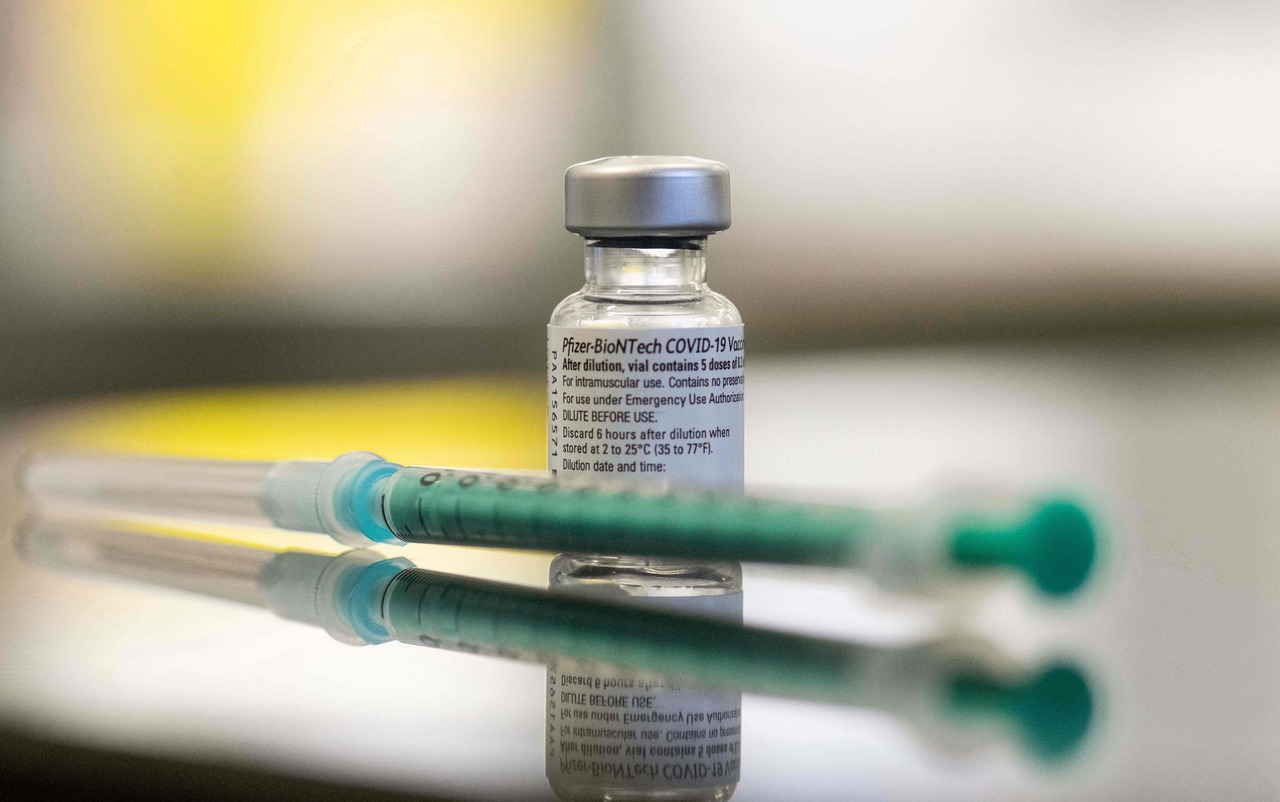Pfizer CEO says lower-income countries didn't order Covid-19 vaccines
Sign up now: Get ST's newsletters delivered to your inbox

Pfizer and BioNtech are on track to deliver 3 billion doses this year to more than 116 countries.
PHOTO: AFP
NEW YORK (BLOOMBERG) - Pfizer's chief executive said that low- and middle-income countries had opted not to order the company's Covid-19 shot, in a letter posted online after the Biden administration said it supported waiving patents to expand global access to vaccines.
"We reached out to all nations asking them to place orders so we could allocate doses for them," Chief Executive Officer Albert Bourla said in a letter addressed to Pfizer employees.
"In reality, the high-income countries reserved most of the doses. I became personally concerned with that and I reached out to many heads of middle/low-income countries by letter, phone and even text to urge them to reserve doses because the supply was limited."
Most low-and middle-income countries he contacted decided to place orders with other vaccine makers either because the underlying technology used in Pfizer's shot was still untested, or there were local production options available, Mr Bourla wrote.
He said some countries didn't ever approve the vaccine, which Pfizer developed with its German partner BioNTech SE.
Waiver debate
On Wednesday (May 5), United States Trade Representative Katherine Tai said the US would support efforts to reach a deal on waiving intellectual-property protections for Covid-19 vaccines, in a reversal of longstanding policy.
Proponents of the move say it could expand access, though critics say there is no current capacity to begin producing cheaper versions of vaccines like the one made by Pfizer.
In a letter responding to the public debate over the proposal, Mr Bourla said that Pfizer and BioNTech use a tiered pricing model for their vaccine. Middle-income countries are asked to pay half what the highest-income nations do, while low-income countries are offered the shot at cost. Such tiered pricing was pioneered by Gilead Sciences as it commercialised its HIV drugs.
Pfizer and BioNtech are on track to deliver 3 billion doses this year to more than 116 countries, Mr Bourla said, and that the 450 million doses delivered to date have been heavily weighted toward higher-income countries that pay the most. In the US, the two-dose regimen is priced at US$39 (S$51.66).
Mr Bourla expects 40 per cent of doses, or more than 1 billion, will go to middle- and low-income countries this year.
"We expect the supply balance to weigh in their favor in the second half of 2021," he said, "and to have virtually enough supply for all in 2022".
Next year, the Pfizer-BioNTech partnership will likely be able to deliver 4 billion doses, he said.
Pfizer supply
Although Pfizer hasn't been shown to charge the most for its vaccine, and has adjusted prices down for less wealthy countries, it isn't the cheapest product. For example, documents show that Colombia paid about US$12 a dose for Pfizer's vaccine, and South Africa agreed to buy doses for about US$10 each, bringing full regimens to Us$24 and US$20, respectively.
Meanwhile, South Africa committed US$5.25 a dose, or US$10.50 for each full regimen, for AstraZeneca Plc's vaccine, in line with the company's pledge to sell the product at cost. South Africa halted its rollout of the Astra vaccine after it showed low efficacy against the coronavirus variant spreading there.
Still, logistics may be as important an issue as price.
Mr Ezekiel Emanuel, a medical ethics and health policy professor at the University of Pennsylvania, said that the Pfizer-BioNTech vaccine still poses challenges for countries without robust infrastructure to maintain it at ultra-cold temperatures.
"It's the most difficult to handle of them all," he said, "and that adds to the problem. It's not only low-income countries that were hesitant to take that up".
US-Pharma friction
Mr Bourla met virtually with the US trade representative last week. In the letter, he said that such a waiver threatens to disrupt Pfizer's ability to manufacture the shots at scale given raw materials are in short supply.
"I worry that waiving of patent protection will disincentive anyone else from taking a big risk," he said.
"The recent rhetoric will not discourage us from continuing investing in science."
Separately, the US trade chief held a meeting with AstraZeneca's Ruud Dobber, who run's the company's biopharmaceuticals business unit. The executives argued that the fastest way for the US to help developing countries is to release its own stockpile of vaccines, including the tens of millions of doses of AstraZeneca's two-shot regimen, which hasn't yet been authorized for use in the country.
Mr Emanuel, who served on Biden's transition Covid advisory board, said that a patent waiver isn't the most effective way to quickly build enough supply for the rest of the world.
"Giving the patent is like sharing a recipe, and the know-how is cooking it, and getting everything right," he said.
Moderna, a competitor to Pfizer, is not enforcing its own patent for the duration of the pandemic. Mr Emanuel said that hasn't contributed to a significant surge in supply from other manufacturers.
"We know the patent isn't the critical element, it's production," Mr Emanuel said.


